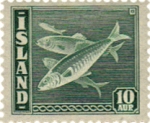 The official controls regarding aquatic animal disease control in Iceland have been described as satisfactory following an EFTA Surveillance Authority study.
The official controls regarding aquatic animal disease control in Iceland have been described as satisfactory following an EFTA Surveillance Authority study.
The organisation conducted its research in Iceland in March to check that official controls concerning aquatic animal health were being conducted in compliance with the European Economic Area regulations. The research concluded that official controls are being conducted regularly enough, but that there are some shortfalls.
EFTA found that a list of aquaculture production companies is present and available for the public to see, but the list does not include transporters. Furthermore, aquaculture production companies are all officially approved and controlled, but biosecurity plans and quality management systems are either not in place yet or haven’t been finalised in a number of fish farms visited.
The authority also discovered that a notification system for disease presence is in place and a contingency plan in the case of fish disease has been introduced, but there remain no facilities authorised or equipped for culling fish in order to control disease. The plan also does not state how or where the carcasses will be disposed in the event of a disease outbreak.
Finally, veterinarians in Iceland are providing medicine to farms that they are responsible for ensuring the official veterinary medicine use is adhered to, which, according to EFTA, could lead to a conflict of interest.
Iceland has recently designated a national reference laboratory that uses accredited methods to detect fish diseases. EFTA described it as well organised with only minor discrepancies.

[…] Iceland – Google Blog Search | Iceland fish disease control 'satisfactory' | IceNews &… […]